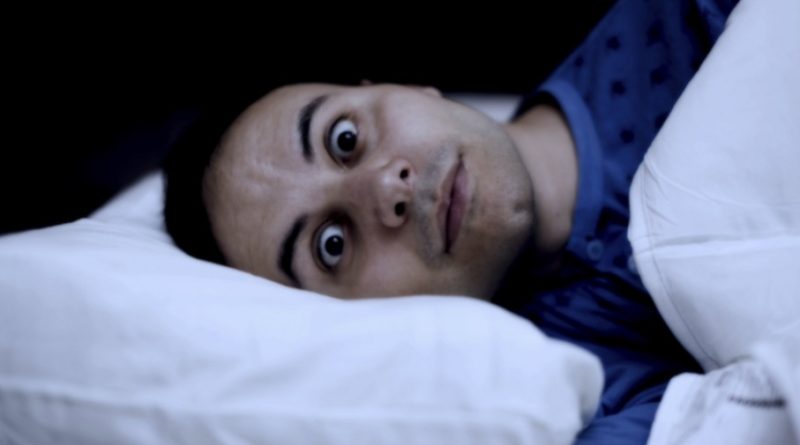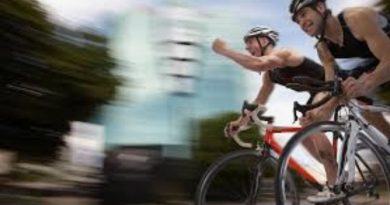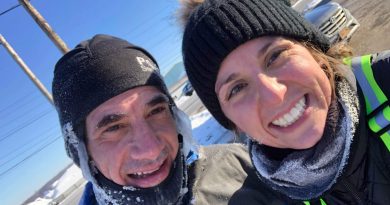Why Can’t I Sleep After a Hard or Long Run
Here’s a scenario a ton of athletes experience, but few talk about: The night after finishing a big endurance competition or a long and strenuous workout, you lie awake in bed or toss and turn despite being thoroughly exhausted. I have come to find out that my sleeplessness may be compounded by feeling like I am radiating heat or I can feel/hear my heartbeat. And even if I am able to get to sleep initially, I struggle to stay asleep and fail to have a restful night. What gives? How can an exhausting event leave me sleepless?
There isn’t one simple cause for post-exercise insomnia, but there are definitely factors that contribute to it:
Hormones
Well, after years and years trying to figure this all out, J have learned that exercise ramps up my heart rate, core temperature, and sweat rate. It also has an excitatory effect on my nervous and endocrine systems. The more strenuous the exercise and the longer the workout or competition, the longer I have been in this excited or aroused state. Two of the hormones that appear to play a significant role in post-workout sleep disturbances are norepinephrine and cortisol.
Cortisol
Cortisol is released in response to stress, which means elevated cortisol levels are a natural consequence of exercise. This increase isn’t all bad; it contributes to the training stimulus that drives positive adaptation. However, when my training workload is too high and I am struggling to recover from workouts from cycling or swimming, chronically elevated cortisol levels are likely part of the problem.
On a day to day basis my cortisol levels fluctuate naturally on a cycle which peaks about 30-minutes after I wake up and slowly declines throughout the day. As a result, I am normally at the lower portion of the cycle when I go to sleep at night. A day-long endurance competition like the cycling around Cobesus Lake in Livonia, NY four times total 73 miles, 20 mile run, or a Half Iron Man I do on my own in a day pushes cortisol levels up and out of sync with the normal daily cycle for cortisol, which can contribute to my sleeplessness.
What about shorter workouts or events? A shorter event closer to my bedtime can have a similar effect to a longer event that ends further before bedtime. What matters are the magnitude of the exertion and the time between the finish and bedtime. The good news for me who sometimes train in the afternoon or evening is that I can habituate to a routine and essentially train myself to get to sleep after a workout. Post-exercise insomnia is more common when the magnitude of the exertion is greater than normal for me, or the workout/competition is later in the day than I am used to, which is not unlikely since I do 3:30 am long runs a few times a week.
Norepinephrine and Adrenaline
Exercise and competition are very exciting to me, and as a result I release more adrenaline and norepinephrine. Adrenaline levels fall quickly after I exercise, but according to a 2011 study by Shahsavar norepinephrine levels may stay elevated for up to 48 hours after exhaustive exercise. This may help explain why I can train in the evening and normally sleep fine, but struggle after exceptionally difficult training sessions and/or very long competitions.
Stimulants
I consume foods or drinks that contain caffeine before or during workouts and competitions. Caffeine is a stimulant I can habituate to quite readily, meaning that some people can drink coffee late in the day and fall asleep just fine. However, i sonetimes struggles to sleep following a late afternoon/evening workout or after long endurance events, i hsve to limit my intake and look at how much caffeine I are consuming and when I am consuming it. In the case of long events, I may realize that I am ingesting a whole lot more caffeine than I normally would over the course of 10+ hours. If that’s a problem, i must reserve the caffeinated sports nutrition products for when I will benefit most from increased focus and alertness.
Dehydration and Core Temperature
There isn’t too much I can do to change my hormonal response to exercise (although, being more fit and less stressed out has helped), but I can absolutely influence my hydration status and its impact on my core temperature. My body temperature dips slightly during restful sleep and starts to increase again as I awaken. I also sleep better in cooler environments compared to hot ones. When my body temperature remains elevated I am very likely to have trouble sleeping. Exercise elevates body temperature, and cooling the body becomes increasingly difficult when I am inadequately hydrated. Some level of dehydration is highly likely following long endurance events lasting more than 4-5 hours. It is essentially inevitable after ultraendurance events like long rides, or long runs. Dehydration also leads to an elevated heart rate, even hours after my workout or race. When these factors combine, I feel like I am radiating heat while lying in bed listening to my heart rate in my ears.
Recommendations
When I have suffered through a sleepless night or a night of tossing and turning after an already-exhausting endurance event, here are some recommendations for getting more and better sleep next time:
- Maximize my fitness: As with many aspects of performance, fitness solves most problems. The more fit I am, the better I will cope with the acute stress from a workout or event. Essentially, my fitness gives me greater ability to absorb the stress before it impacts my sleep.
- Minimize lifestyle stress: “Let it go, let it go…” Seriously, the stress I’m carrying from my job or my busted family relationship or not being able to see my sons when I want too just pours more cortisol on the fire and heightens the sensitivity to excitatory hormones like epinephrine (until a chronic overload of these hormones subsequently reduces my sensitivity to them).
- Ease up on the stimulants: Remember, caffeine doesn’t actually give me any additional energy. It primarily helps with focus and awareness, and in that regard consuming more doesn’t necessarily lead to greater benefit. In long events, caffeinated products are not likely to help me all day. A better strategy for endurance events is to consume caffeine before a portion of the race where I actually need it. Look up how caffeine for endurance athletes.
- Proactively cool down: I believe I have gotten the message about post-workout or post-event rehydration and fuel replenishment. But proactively bringing my body temperature down is also important. Effective methods include dousing clothing with cold water, ice packs, cool water immersion (not necessarily ice baths), cool showers, and hanging out in an air-conditioned environment.
- Cooling my sleeping environment: Both core and skin temperatures decline when I fall asleep, and a cool sleeping environment helps create a temperature gradient that facilitates this process. Everyone is a bit different, but optimal room temperatures for promoting restful sleep are typically in the 60-70 degree Fahrenheit range.
You can reach me directly at my email address anthony@anthonycrilly.com or (585)484 – 1456. Looking forward to connecting!
Best,
Anthony Crilly
Please Visit for more information: Links:




